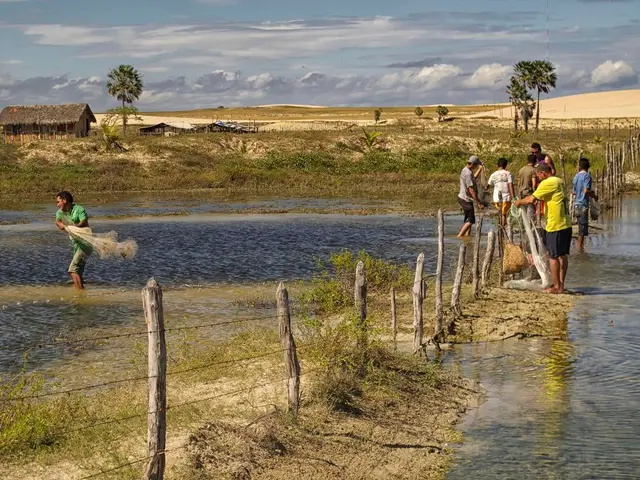Unacknowledged Pivotal Roles of Wildlife in Conservation and Human Welfare
Wildlife's Role in Nature's Contributions to People Underestimated, Study Suggests
A recent study published in Nature Reviews Biodiversity has shed light on the often overlooked contributions of wildlife to 12 out of 18 categories of Nature's Contributions to People (NCP). Recognizing the essential role of wildlife in global conservation and biodiversity targets is crucial, according to the research.
Historically, conservation efforts have centered more on preserving ecosystems rather than understanding the distinct roles played by individual species. This complex task challenges logistics and resources. Moreover, economic and policy frameworks have primarily focused on immediate human benefits, relegating wildlife's pivotal role in long-term ecological equilibrium to the sidelines.
The study categorizes wildlife's contributions to people (WCP) into three main areas:
- Material contributions: Wildlife offers essential resources such as food (e.g., fish and bushmeat), medicinal compounds, and materials like fur and leather.
- Nonmaterial contributions: Cultural and spiritual connections to wildlife shape human identities, traditions, and recreational activities such as wildlife tourism and birdwatching.
- Regulating contributions: Species play key roles in maintaining ecosystem stability, like beavers maintaining wetland habitats, birds dispersing seeds, and predators controlling herbivore populations to prevent overgrazing.
However, WCP are rarely accounted for in conservation policies, which often center on habitat preservation over species-specific roles. To bridge this gap, the study proposes improved wildlife monitoring through modern technological means, holistic conservation approaches, and greater inclusion of Indigenous and local knowledge systems in decision-making.
The research highlights key challenges, such as taxonomic and geographic biases in research, the lack of data and monitoring tools, and human-wildlife conflicts that make balancing ecological benefits with human economic interests a challenge.
Recognizing and integrating WCP into conservation efforts is vital for a more resilient future, ensuring the benefits that nature provides while safeguarding biodiversity. The study underlines the need for a paradigm shift by acknowledging wildlife as active contributors to human well-being and societies worldwide.
In an accompanying perspective article, conservation strategies focused on safe haven locations for rare and threatened species are outlined. Another article examines the role of supercharging ecosystem carbon sinks in reaching the 1.5°C climate target.
Independent of these specific studies, understanding wildlife's essential contribution to various aspects of NCP is crucial for effective conservation decision-making and sustainable development.
- The essential role of wildlife in global conservation and biodiversity targets, as revealed by a recent study in Nature Reviews Biodiversity, necessitates recognizing their contributions to health-and-wellness, via cultural and spiritual connections, and fitness-and-exercise opportunities such as wildlife tourism and birdwatching.
- In the realm of environmental-science, recognizing wildlife's unique roles in maintaining ecosystem stability, such as beavers maintaining wetland habitats, birds dispersing seeds, and predators controlling herbivore populations, is crucial for a more resilient future.
- The study emphasizes the need for improved wildlife monitoring through modern technology, holistic conservation approaches, and greater inclusion of Indigenous and local knowledge systems in decision-making to ensure the benefits that nature provides while safeguarding biodiversity.
- The study also insists on integrating wildlife's contributions to various aspects of Nature's Contributions to People (NCP) into conservation policies to promote sustainable development, and it underlines the need for a paradigm shift in viewing wildlife as active contributors to human well-being and societies worldwide, as well as to the science field, specifically nature conservation.







